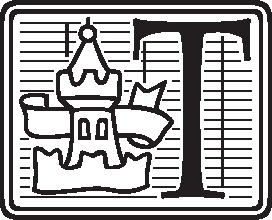The Dark Lady's Mask
Read The Dark Lady's Mask Online
Authors: Mary Sharratt


Pierced by the Arrows of a God
A Woman's Writing of Divinest Things
Copyright © 2016 by Mary Sharratt
All rights reserved
For information about permission to reproduce selections from this book, write to
[email protected]
or to Permissions, Houghton Mifflin Harcourt Publishing Company, 3 Park Avenue, 19th Floor, New York, New York 10016.
Library of Congress Cataloging-in-Publication Data
Sharratt, Mary, date.
The dark lady's mask / Mary Sharratt.
pages ; cm
ISBN
978-0-544-30076-7 (hardcover)â
ISBN
978-0-544-28974-1 (ebook)
1. Â Lanyer, AemiliaâFiction. 2. Â Women poets, EnglishâFiction. 3. Â Shakespeare, William, 1564â1616âFiction. 4. Â Man-woman relationshipsâFiction. Â I. Title.
PS3569.H3449D37 2016
813'.54âdc23Â 2015020514
Cover design by Martha Kennedy
Cover art: © Leeds Museums and Art Galleries (Temple Newsam House) UK/Bridgeman Images
v1.0416
Â
For Joske
The myth of Aemilia Lanyer as Shakespeare's Dark Lady both testifies to our continuing cultural investment in a fantasy of a female Shakespeare, and reveals some of the anxieties about difference that haunt canonical Renaissance literature.
âKate Chedgzoy, “Remembering Aemilia Lanyer,”
Journal of the Northern Renaissance,
Issue 2, 2010

Vouchsafe to view that which is seldome seene,
A Womans writing of divinest things.
âAemilia Lanyer, “To the Queenes most Excellent Majestie,”
Salve Deus Rex Judaeorum
P
RELUDE
1593

HE HUNGER
to know her destiny enflamed Aemilia's heart, driving her to Billingsgate on a scorching afternoon. She hastened down Thames Street, crammed with grocers whose vegetables wilted in the heat, offering up their odors of slow decay. This parish was a gathering place of outcasts and refugees, peopled by immigrants fleeing the religious wars that raged in the Low Countries. The Dutch and Flemish paid dearly for their lodgings in once-great houses that had become tenements, rotting away like the unsold lettuces in the market stalls.
A waif darted in Aemilia's path to distract her while his accomplice attempted to snatch her purse, only to receive a swat from Winifred, her maid, who towered over Aemilia like a blond giantess. Winifred, her stalwart protectress.
“Oh, mistress, let us go home,” the maid pleaded. “This is no district for a gentlewoman.”
But Aemilia pressed on until she sighted the steeple of Saint Botolph's Billingsgate and beside it the Stone House, the former rectory, its chambers now let by tradesmen. Over the shadowy entrance hung the shingle she had been seeking.
D
OCTOR
S
IMON
F
ORMAN
M
ASTER
A
STROLOGER
& P
HYSICIAN
Winifred balked, but Aemilia led the way across the threshold and up the stairs to the astrologer's consulting room. A sallow apprentice opened the door, its hinges squeaking like bats.
“The master astrologer shall see you shortly, madam.”
Aemilia blinked as her eyes adjusted to the murk of this chamber with its single window. Her eyes lingered on the star charts and sigils scribed on virgin parchment and pinned to the ancient wainscoting. The room was sweltering, for a fire blazed beneath a bubbling still. The astrologer appeared absorbed in casting various herbs into the strong water, their essential oils marrying in a fragrant alchemical dance that left her reeling.
To calm her nerves, she examined Doctor Forman's bookshelf. Apart from his prominently displayed Geneva Bible, most of his texts were LatinâAlcabitius's treatise on the conjunctions of the planets and Gilbertus Anglicus's rules for testing a patient's urine. She smiled to see
Philosophia Magna
by the great Paracelsus, a book she knew well but hadn't had the opportunity to read in years. Opening the pages, she whispered the Latin words in an incantation, for Paracelsus's hermetical ideal fascinated herânature was the macrocosm, humanity the microcosm. Everything in the universe was interdependent, like the interlocking parts inside a clock, everything moving together in divine harmony.
“Madam reads Latin?”
With a start, Aemilia turned to the astrologer, who had appeared at her side, sweating inside his black physician's robes. When he took the book from her, she couldn't resist selecting another tome, one with Hebrew letters on its spine. Though she pored through the pages, the incomprehensible letters did not yield their secrets.
“But madam does not read Hebrew,” the astrologer concluded, snatching that book from her as well. “It's purported to be a kabbalist text, though I confess I can't decipher the thing. A sailor from Antwerp gave it to me in exchange for his star chart since he'd no other method of payment. Now what can I do for you, madam?”
Doctor Forman steered her away from his books and offered her a chair, then seated himself before her, far too close for her comfort, their knees almost touching. The man's fame as an astrologer was equally matched by his notoriety as a seducer of women.
Aemilia cast a glance at Winifred, who took up position beside her chair and glowered at Doctor Forman, as though prepared to brain him with one of his own specimen jars if he presumed to take liberties with her mistress. Doctor Forman cleared his throat and moved his chair a few inches back, allowing Aemilia to breathe more freely.
“Master Forman,” she said. “I would have you cast two charts for me. One for my past and one for my future.”
“My services do not come cheap, good mistress. What's your income?” The astrologer appeared to study her intently, as if trying to deduce her rank and station from her taffeta gown and the lace and pearls at her throat.
“Forty pounds a year,” she said.
“Hardly a princely sum.”
“I'm rich enough to the man who married me,” she said tartly.
Her show of temper seemed to intrigue the astrologer. Perhaps he imagined that a woman with a grudge against her husband would prove an easy conquest.
“What's your name, madam?” The astrologer began to scribble notes in a small black book.
“Aemilia Bassano Lanier.” She spoke her name with dignity but braced herself for the astrologer's reaction, the sly innuendo and surmising she had come to expect.
The astrologer remained bent over his notebook. “And where do you reside?”
“Longditch, Westminster.”
He raised his eyebrows. “A most prestigious district. So close to court.”
Aemilia said nothing.
“Now tell me how you came to receive the income of forty pounds a year. Is this your inheritance?”
She looked at the astrologer wonderingly and struggled not to laugh. Was there truly a soul left in London who didn't know her history?
Â
| I |
|
1
The Liberty of Norton Folgate, 1576



